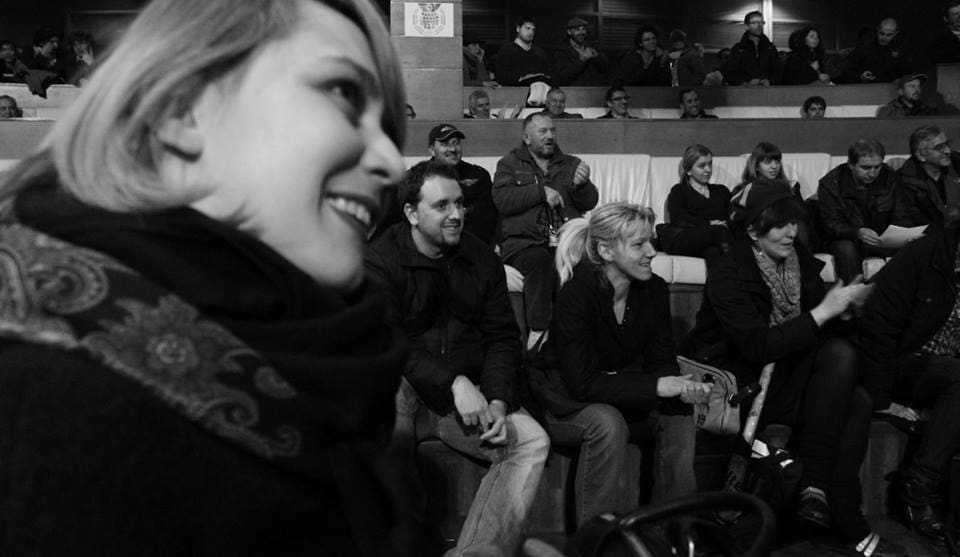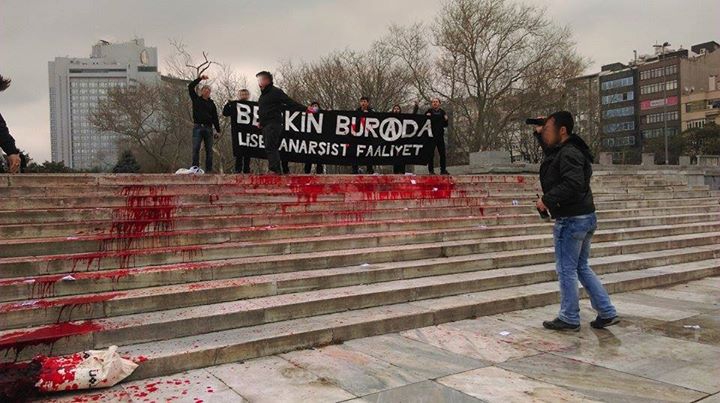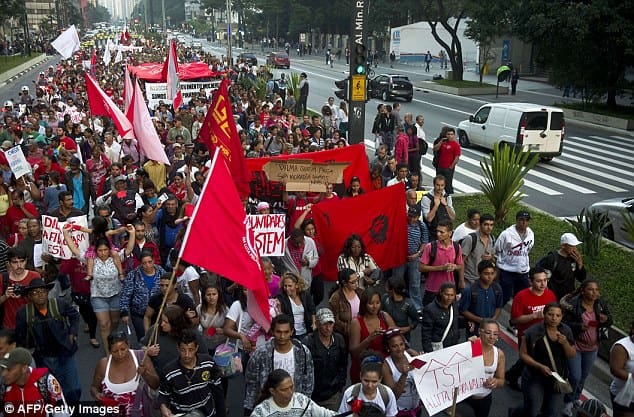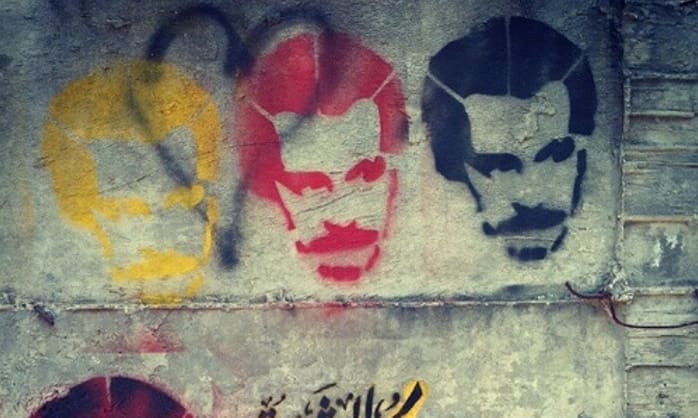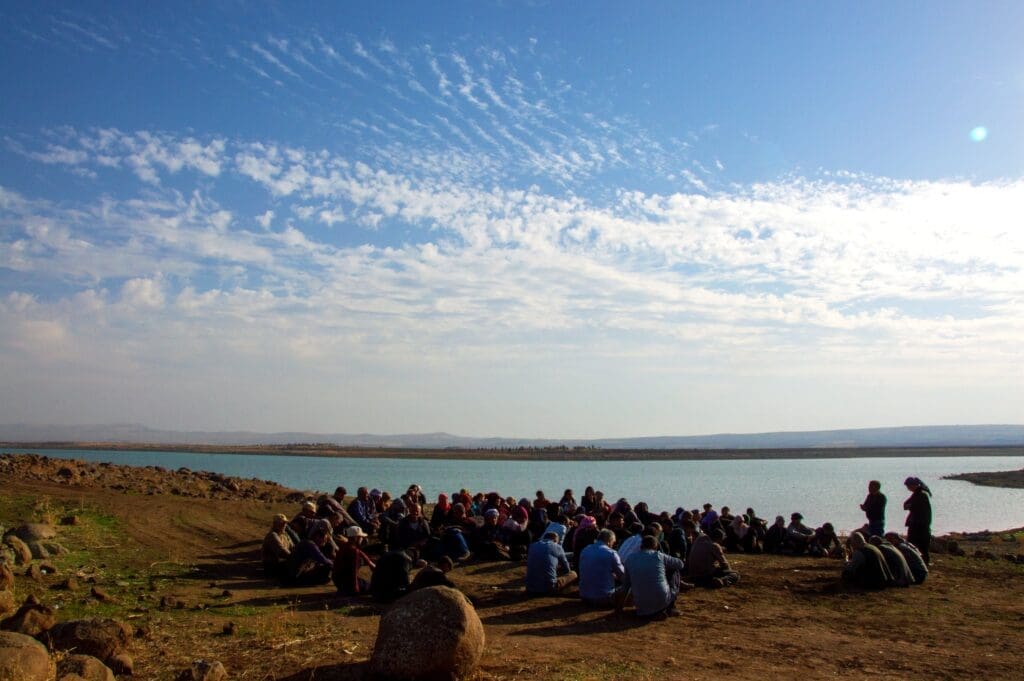AntiNote: This article first appeared in German on the website of the Antikapitalistische Linke, a constellation of currents within the far-left German political party DIE LINKE which explicitly includes unaffiliated activists and agitators and views itself as a bridge between DIE LINKE and non-partisan anti-capitalist movements within Germany and elsewhere.
A pair of AKL activists recently visited Tuzla and spoke with people involved in the citizens’ assemblies and protests there which generated a good deal of excitement in Left circles in Europe in February and March of this year…but which regrettably seem to have fallen off the radar screen in recent weeks.
As we have seen a number of commentators, even on the Left, reading the movement in Bosnia its last rites and/or pointing out all the places where it “went wrong,” we at the Antidote Writers Collective wish to insist, along with our friends of the AKL, that there is still fog on the mirror. As long as the struggle continues, the struggle continues. The activists in Tuzla are still speaking; is it not the height of rudeness to turn away?
A dispatch from Tuzla by Inge Höger and Carsten Albrecht
This was how one demonstrator’s sign put it: “I am not Serbian. I am not Croatian. I am not Bosniak. I am unemployed.”
Three months after their initial eruption, the protests by Bosnian workers and youth continue, if now in slightly diminished form. In Tuzla, the citizens’ assembly—or plenum—meets twice a week, and rallies and demonstrations take place regularly. And it must be said: the protest movement has already scored some victories. Three Cantonal governments have stepped down, golden parachutes (the Bosnian expression is “white bread”) for expelled functionaries have been abolished, and some Cantonal assemblies have established public health insurance programs for workers.
The latter was especially urgent; companies operating in Bosnia-Herzegovina haven’t been required to pay into the social security system for their employees since 1997. Thousands of workers live in poverty, having to cover their own health and retirement insurance.
It is even worse for people without work, of which there are plenty: 45% of Bosnians are jobless; youth unemployment has hit 65%. In front of this backdrop, it makes sense that one million people in Bosnia are reported by union sources to get by on only two meals a day. This is a quarter of the population.
It also makes sense that the protests against this misery have not remained completely peaceful: a number of government buildings were set on fire at the outset of the revolt in February. “Molotov cocktails aren’t very nice, but without them nobody would have paid attention to us,” said one worker, who has been waiting on back pay for two years. The mayor of Tuzla, Jasmin Immanovic, sees it differently. He fears that the protests will be subverted by “criminal elements.”
But this back-and-forth about violence—spurred on primarily by Bosnian elites and their media—only distracts from the social emergency in which most people in this country find themselves.
Ukrainian Scenario?
In the days following the first waves of protest, as the plenums took form in numerous Bosnian cities and began to hash out political demands in a direct-democratic fashion, activists were concerned first and foremost with “preventing the Ukrainian scenario,” as a cofounder of the Tuzla plenum, Vedad Pasic, told us. “Nobody in this country wants to see excessive violence—much less a new war.” The war in Bosnia ended only nineteen years ago; much of its trauma is still fresh in the minds of the population.
For this reason, many Bosnians have placed their hopes with the EU or even NATO. For many, these organizations represent guarantors of peace. This is, of course, a paradox—NATO has functioned recently more as a guarantor of war, and the EU has hardly shown it can provide for sustainable social peace with its neoliberal dictates. Nevertheless, an orientation towards these purportedly protective power blocs is emerging, and is even advocated by some representatives of the plenums.
This is partly due to a general disgust with local elites and their criminal failures. A union member quoted a Bosnian expression: “Every country has a mafia; here, the mafia has a whole country.”
The plenums are nonetheless an attempt at ‘politics from below.’ Those actively participating aren’t interested in forming a new political party; they see themselves rather as a watchdog—with an eye on every move the government makes, and the power of popular veto.
The strong orientation towards the EU could also be explained by the centuries-long history of colonization in Bosnia-Herzegovina, which was only interrupted by the Yugoslav project of the mid- to late twentieth century—and seems to be finding its footing again. First it was the Ottomans, then the Habsburgs; since 1995 it has been EU bureaucrats that have had the last word. As a result, many Bosnians reflexively address their demands outwards, to the EU and other international agencies, because they are used to assuming that everything will ultimately be decided there anyway.
Corruption not Production
Heavy pressure from the EU, the World Bank, and the IMF is to blame in Bosnia—just as in the rest of the Balkan region—for the massive privatization of state assets. Responsibility for the kleptocratic nature of the privatization process itself, however, often lies at the feet of local nationalist elites. “Corruption not production” neatly sums up this process.
Producing nothing, workers naturally also earn nothing. A group of laid-off workers from the detergent company DITA told us that every one of them has been living without any income for two years. Family helps out where it can, but the poverty is palpable. After a while they ask us, “isn’t there a German company that could take over operations?” Who would reproach these people for suggesting something still within the logic of privatization? The despair is so great; any exit whatsoever seems fair enough. Publicly criticizing privatization as such—this is the difficult task for Left groups like Ljievi.
Nearly every conversation that we had in Tuzla was characterized by tension between hope and despair, between optimism and pessimism, between self-empowerment and subordination to outside forces.
Rewriting Dayton?
“The movement would have succeeded if we hadn’t started talking about constitutional reform,” says Vehid Sehic of the Tuzla citizens’ assembly. He counsels activists from the plenum, and is of the opinion that they should have kept their demands within the social dimension. Comrades at Ljievi say the same thing. “The most important measures can be implemented without constitutional reform: hold privatization plunderers to account; effect the payment of back wages; reintroduce private sector social security obligations.”
Others think that reforming the 1995 EU- and USA-imposed Dayton Accords is a precondition to social change. The dual national administration structure—spread over ten Cantons and 150 ministers—generates elites who simply enrich themselves and stand in the way of any progress. The former Croatian president Stjepan Mesic recently suggested a Dayton-II Accord. He envisions an administrative structure in which no one ethnicity has a majority in any one place. Needless to say, the Croatian nationalist HDZ Party is not very enthusiastic about Mesic’s approach. Circles such as theirs would prefer to create a Croatian fractional republic within Bosnia-Herzegovina.
Constitutional reform or no, the fulfillment of social demands probably depends on how strong the protests and plenums are and can remain. Even pessimists admit, “the protests have achieved at least one thing: politicians can’t just do whatever they want anymore.” The government of the Serbian fractional republic of Bosnia (Republika Srpska) recognized the danger quickly and preventively detained leftist activists immediately after the outbreak of protests in other parts of the country. Still, demonstrations also took place in their regional capital Banja Luka.
In October there will be new elections in Bosnia-Herzegovina. Since the protest movement cannot rely on any established political forces—it is widely recognized that nationalists and social democrats are part of the problem, not part of the solution—there will probably be new administrations at every level of government…which will be exactly the same as the old ones. “It could come to another revolt in early 2015, and it would really blow up this time.” The plenum activist who told us that isn’t entirely looking forward to such a scenario—he is already coping with regular death threats.
The situation in Bosnia is simply full of contradictions. One unionist refuses to lose faith: “one thing is clear; the protests have radicalized the people. We will not just be sent back home.”
Translated by Antidote
Featured Image Source: Ena Bavčić, via The Balkanist

